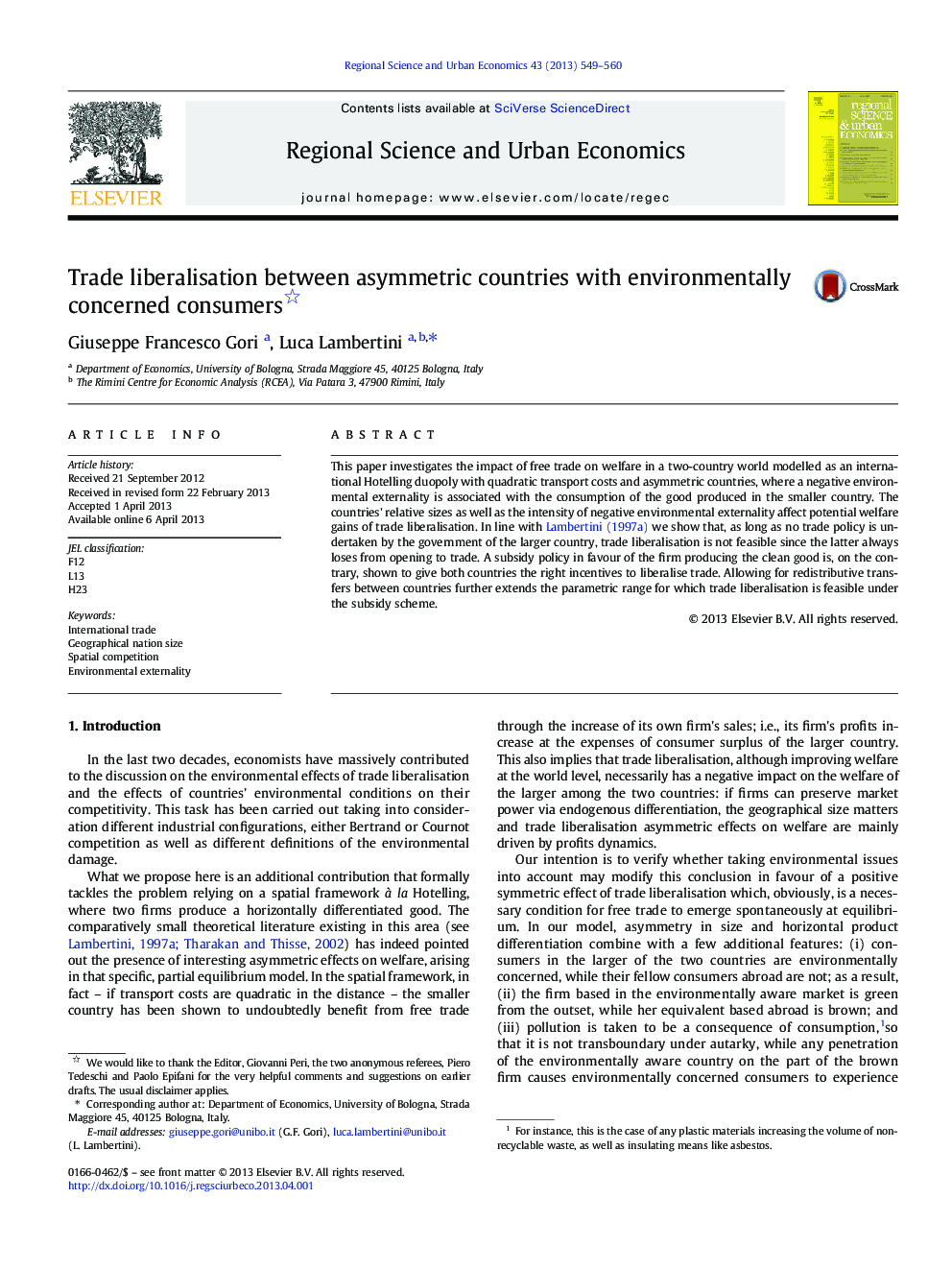| Article ID | Journal | Published Year | Pages | File Type |
|---|---|---|---|---|
| 983362 | Regional Science and Urban Economics | 2013 | 12 Pages |
Abstract
This paper investigates the impact of free trade on welfare in a two-country world modelled as an international Hotelling duopoly with quadratic transport costs and asymmetric countries, where a negative environmental externality is associated with the consumption of the good produced in the smaller country. The countries' relative sizes as well as the intensity of negative environmental externality affect potential welfare gains of trade liberalisation. In line with Lambertini (1997a) we show that, as long as no trade policy is undertaken by the government of the larger country, trade liberalisation is not feasible since the latter always loses from opening to trade. A subsidy policy in favour of the firm producing the clean good is, on the contrary, shown to give both countries the right incentives to liberalise trade. Allowing for redistributive transfers between countries further extends the parametric range for which trade liberalisation is feasible under the subsidy scheme.
Related Topics
Social Sciences and Humanities
Economics, Econometrics and Finance
Economics and Econometrics
Authors
Giuseppe Francesco Gori, Luca Lambertini,
